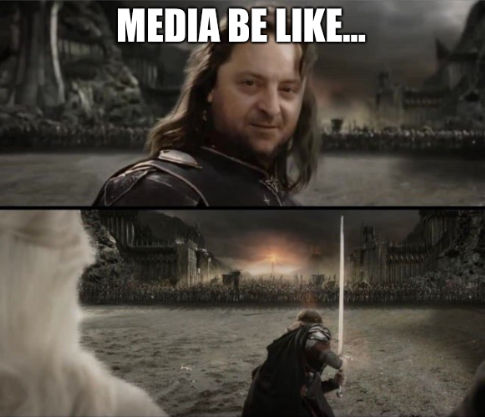An Open Letter to Nationwide Bank About Enshittification
 nshittification is not a term that I used, but here it is for everyone to see:
nshittification is not a term that I used, but here it is for everyone to see:
Some time ago I wrote to you regarding a cyber issue. I appreciated your response and it seems like you took my input seriously and changed accordingly so as to alleviate concerns about online scams and communication over E-mail.
Today I want to give some input regarding your branch at Manchester City Centre (Market Street).
In a nutshell, my wife and I had a 9:30 appointment and spoke to an employee whom we liked and has been very helpful to us in the past. We appreciated how she solved an issue and even communicated with us several time, by landline, to ensure the issue had been solved.
Today it seems like when handling us she was being supervised from the desk to us (accompanied from afar), where a person we assume to be her manager eavesdropped on our communication and threw mildly demeaning remarks our way (if not microaggression, definitely micro-managing the lady who served us, based on our intuition). The lady we sat with wanted to offer the services that we scheduled the meeting for, however this was interrupted by the other lady, who insisted we needed to do it using an “app” (which we don’t have) on our own. It was rather unpleasant, probably not only for us but also for the lady who served us.
After this appointment my wife and I spent some hours discussing this matter in a coffee shop down the road and decided to write to you about it. We want to be heard and we amicably ask for our input to be humbly considered. We write with good intentions, no bad faith here.
To keep this tidy, I wanted to take this opportunity to raise a number of pertinent concerns only partly related to this appointment (some are more general). The appointment started OK, but ended with some disappointment, not appointment per se.
1. Online Pressure and Discrimination Against ‘Offline’ Banking
When online banking was phased it more than 2 decades ago we were assured it would mostly enhance services rather than exclude or discriminate against people (e.g. things exclusive to some customers, not available to those who don’t opt in; some cannot feasibly opt in, see point (3) below).
My wife and I are both Computer Scientists and prefer for banking to be done in person. We know why. We know how computers work. Herding clients into “apps” and Web sites is not only unsafe; it’s also a risk. It is possible that things will not be done correctly, then blamed on the customers. Instead of saving time it might end up costing the customers a great deal of time, even distress.
2. In-Branch Services
We were told that there is guarantee of access to a branch, however the branch where we both opened out accounts more than a decade ago literally became a casino (the branch got closed, only to be replaced by a gambling shop near Piccadilly Station) and it looks like senior staff – i.e. people who know us and vice versa – was removed over time, only to be replace by much younger people who are less experienced and very dependent on colleagues. That slowed things done. Things that can (or could) take just 5 minutes would take up to an hour, sometimes even longer.
It moreover seems like every year more things become “online-only”, thus we are led to assume the end goal is for the bank to just become some “app” and Web site with no physical presences, no staff to approach, and no collaterals or assets with which to back savings. This seems like a risky gambit and a worrying trajectory that does not inspire confidence.
With banking, it all boils down to trust and confidence. People need to sense that they can confidently withdraw their money. They need to feel like the money is in safe hands.
3. Accessibility
For the sake of people with disability/ies (all of us are likely to become at least partly disabled at one point our our lives) it is crucial to maintain in-person services and imperative that assurances to this effect are given. Contrary to this, the impression given to us today is that such a commitment is gradually being phased out and banking with a human touch (as such) will be only temporarily available, leaving clients grappling to face persons who are qualified and familiar with the particular processes.
Please, can you investigate and clarify these matters? Our aim is not to belittle or insult anybody; we just try to do our best to improve the service or the perceived customer experience. We felt like we witnessed today competing interests: the profit motive against the clients’ genuine interest.
4. Customer-First Approach
In 2000 I was already a very early adopter of online banking, but now I partly regret what became of it; it seems to be means of outsourcing labour from bank staff to the clients, both at the expense of staff and clients and at risk (accountability) to staff and clients, for neither stands to benefit from this role-passing, i.e. it’s detrimental to us all, even your own staff, whose future seems increasingly uncertain. There is no lack of manpower (there are many people out there eager to find a job), there is just a race to the bottom in terms of filling up positions (or simply deprecating them altogether).






 Filed under:
Filed under:  NFLATION is not a new problem. It is a problem that’s “always there” – sometimes just worse (higher) and therefore more visible. It’s also a form of hidden tax. To make matters worse, it’s part of false promises made by banks and economies built mostly upon debt, not wealth. There’s no “quick fix”; the best solution is to avoid debt altogether.
NFLATION is not a new problem. It is a problem that’s “always there” – sometimes just worse (higher) and therefore more visible. It’s also a form of hidden tax. To make matters worse, it’s part of false promises made by banks and economies built mostly upon debt, not wealth. There’s no “quick fix”; the best solution is to avoid debt altogether. ustice and monarchs are not concepts that can be reconciled (to coexist). Let’s choose one over the other.
ustice and monarchs are not concepts that can be reconciled (to coexist). Let’s choose one over the other.
 he war in Ukraine needs to end; neither side is going to “win”. Worse yet, the conflict would spill over to other countries.
he war in Ukraine needs to end; neither side is going to “win”. Worse yet, the conflict would spill over to other countries.

 AST year the world changed. Here in the UK nothing was the same anymore, even if the government likes to pretend otherwise and move on (pretending COVID-19 is “old news” is just about as bad as calling it “fake news”; people who believe either should be treated as “COVIDiots”). The
AST year the world changed. Here in the UK nothing was the same anymore, even if the government likes to pretend otherwise and move on (pretending COVID-19 is “old news” is just about as bad as calling it “fake news”; people who believe either should be treated as “COVIDiots”). The 
 S someone who works from home (for many years already) I may be biased, but here we go anyway.
S someone who works from home (for many years already) I may be biased, but here we go anyway.